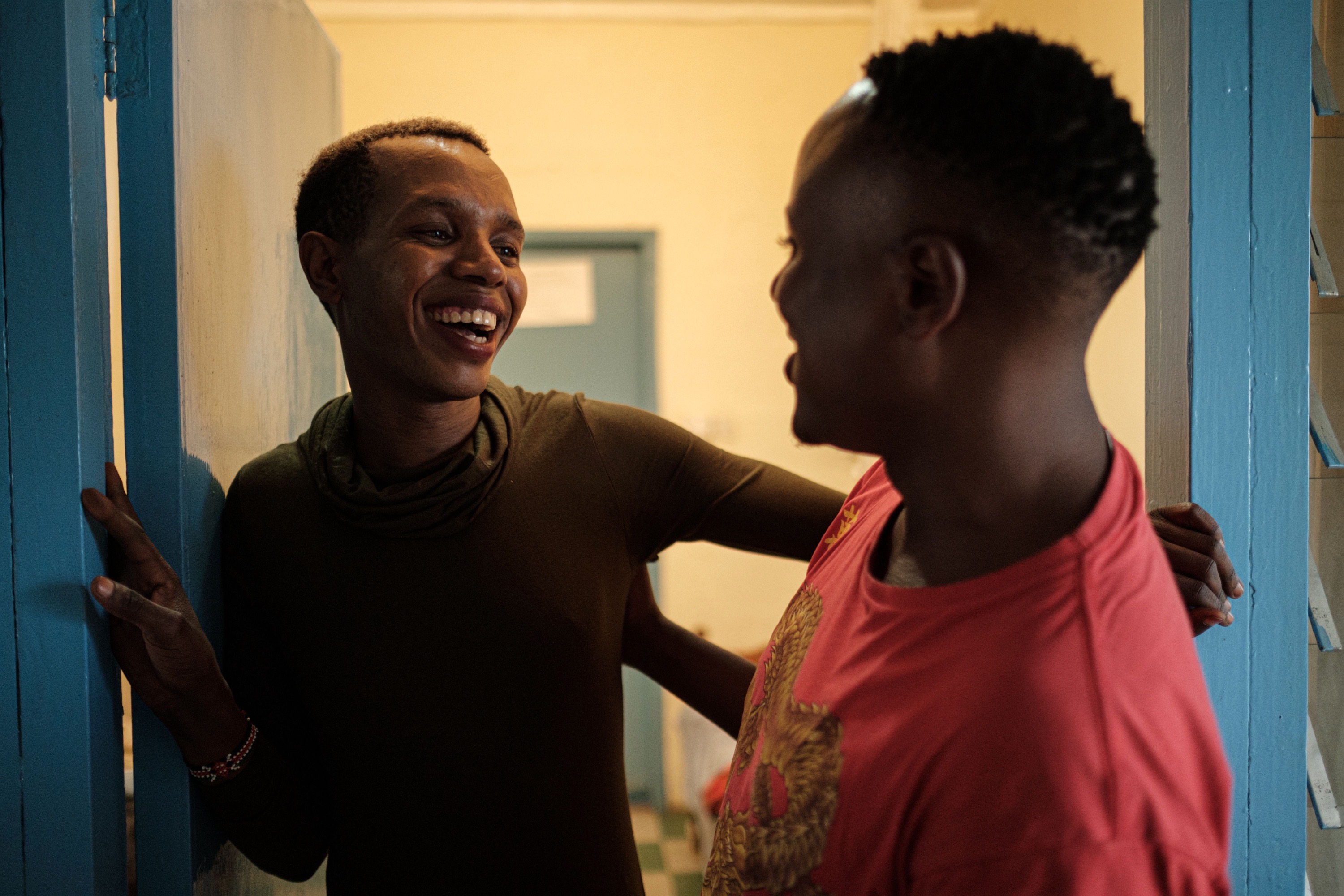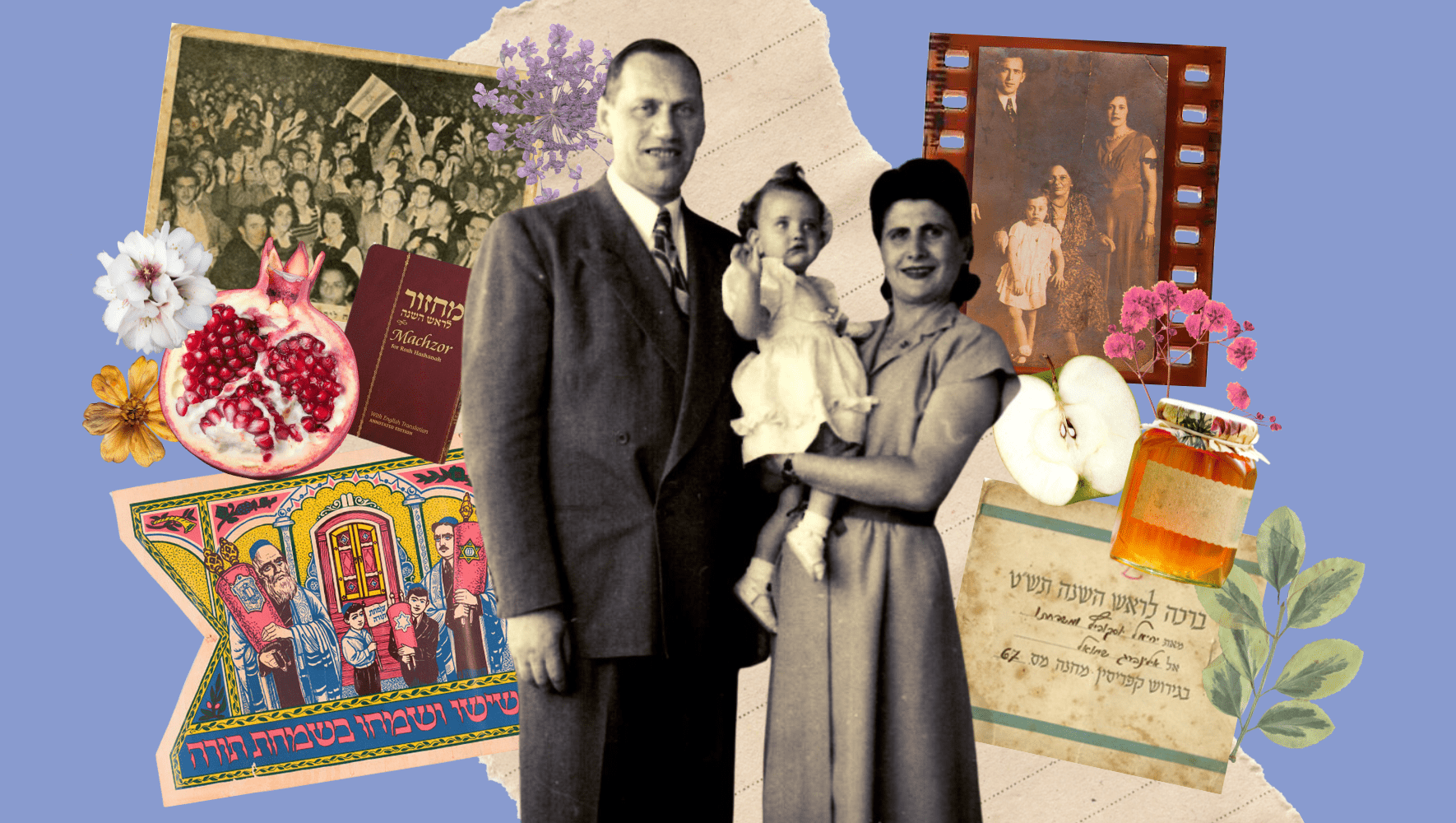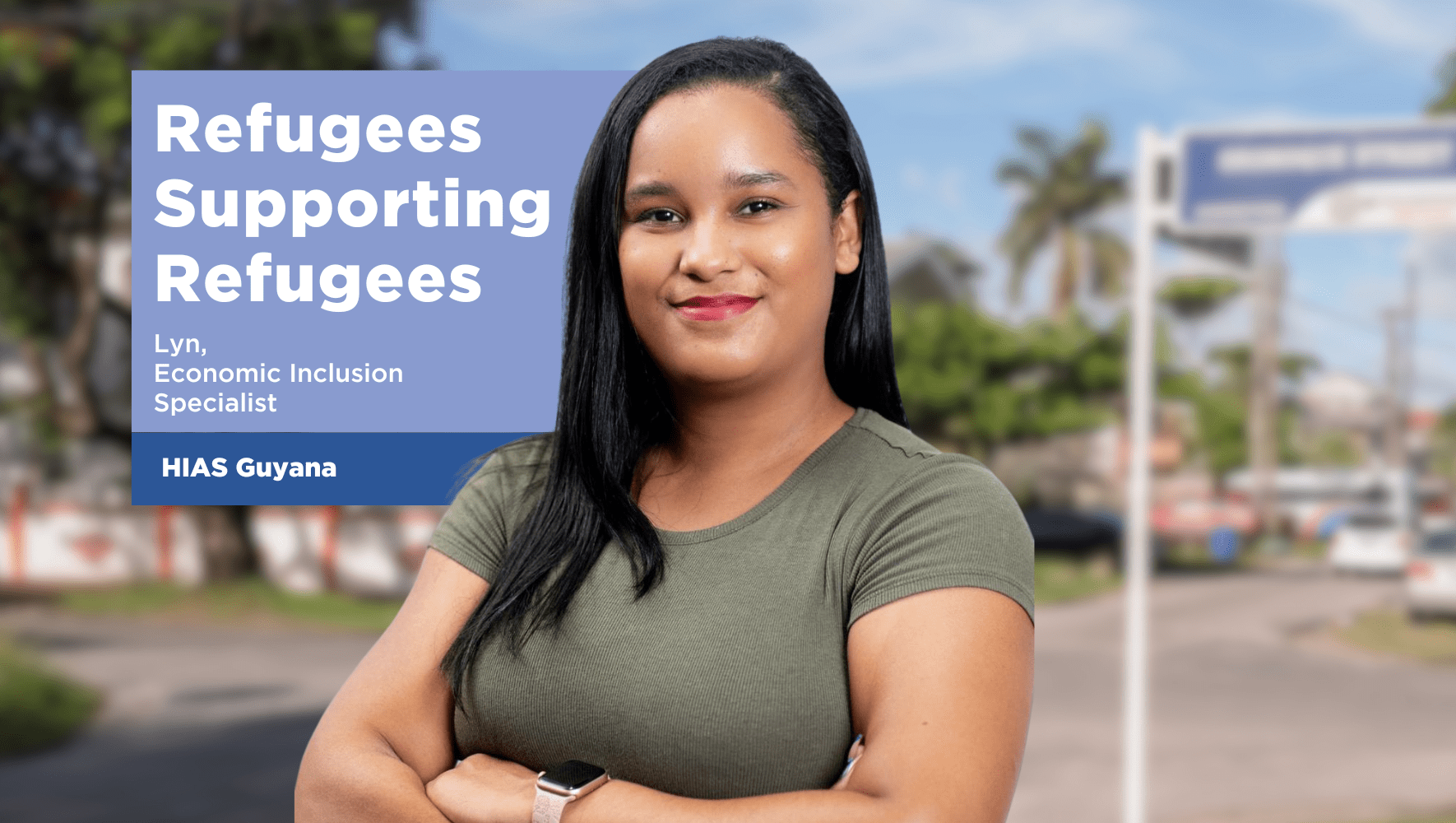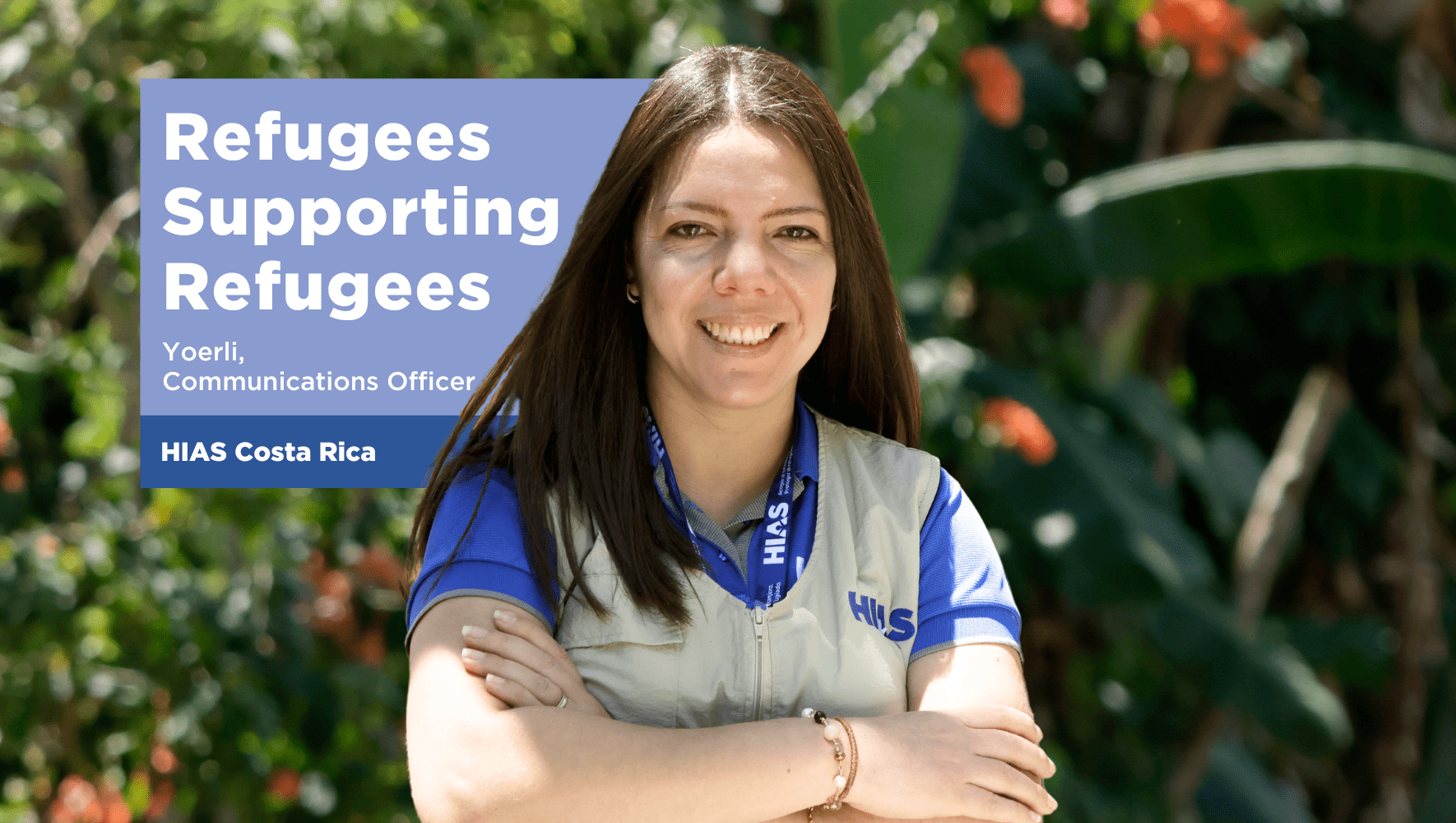For Trans Women Refugees, HIAS Can Be a Lifeline
Jun 30, 2020

Purity Paige, a transgender refugee in Kenya, speaks to her partner in Nairobi on May 21, 2019.
(Yasuyoshi Chiba/AFP via Getty Images)
Refugees face a wide range of challenges and dangers, from affording food and shelter to battling discrimination and violence. Transgender women refugees must contend with even more problems, including gender-based violence, anti-LGBTQ stigma, and sexual exploitation.
With more and more transgender women approaching HIAS for help, particularly in Latin America, we have made their well-being a top priority. In addition to helping with basic needs like cash and food, HIAS has created training programs focused on the needs of transgender women, helping them build sustainable lives and become agents of change in their new communities.
“HIAS is the place where I can dream again,” wrote Mery*, a transgender Venezuelan refugee in Ecuador, in her proposed business plan.
In Ecuador, we have included 85 vulnerable LGBTQ individuals in our Graduation Model Approach, or GMA, a program that gives particularly vulnerable refugees both aid and training to overcome extreme poverty. Participants get entrepreneurship training, mental-health support, seed money, and other assistance that helps them earn a stable living and integrate into their host community. For transgender women, the training is done through a gender lens so it addresses their specific needs and ensures that they feel safe.
Nancy*, one of our clients currently participating in the GMA, was forced to flee Venezuela for political reasons. Though she was a successful HR manager at home, she was unable to find work after arriving in Ecuador and spent several nights sleeping on the street. After being referred to HIAS, however, she joined the GMA and now has a nail-care business. Before COVID-19, she made enough to send money back home to her mother, and she’s confident that her customers will return because of the ties she has built in her community.
HIAS also works with PROSA and Fundación Equidad, local organizations that work with vulnerable LGBTQ individuals, to provide entrepreneurship training in Peru and Ecuador, respectively.
HIAS also teaches interested refugees to become community mobilizers, who can offer accurate information on health-care access to other refugees and locals. Mayerli*, a transgender woman from Venezuela, has received that training in Ecuador and now relishes the chance to talk to her community about sexual and reproductive rights for women and LGBTQ individuals. Because she is HIV-positive, she wants to help protect her neighbors from both contracting the disease and the stigma of living with it.
Through these programs, transgender women are getting the support they need to live safe and dignified lives in the new homes.
*Pseudonyms used for clients’ protection.





